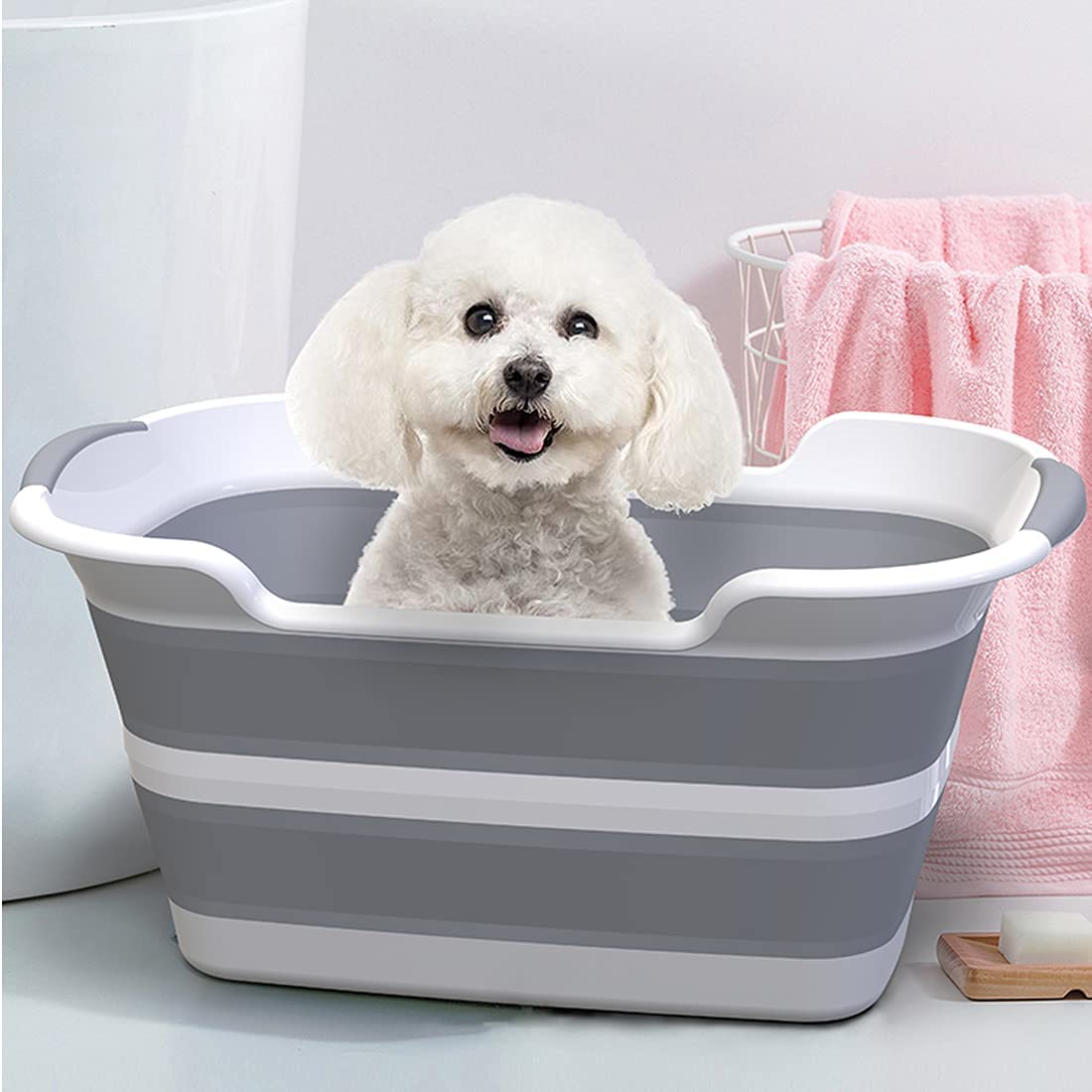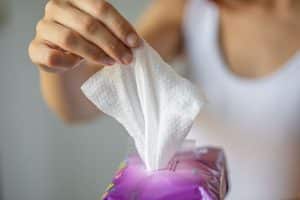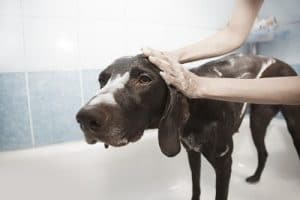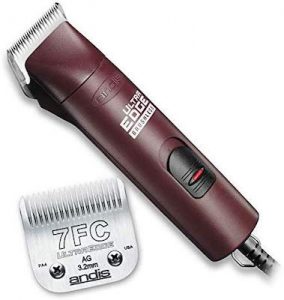Dogs are beautiful creatures, but let’s face it, they can sometimes be a bit smelly. It could be because of rolling in something they shouldn’t have or anything else. Still, it’s only sometimes practical or necessary to bathe them.
As such, it took me a long time to figure out quirky ways of getting around this issue. Luckily, you get them served on a platter. Or a flat mobile screen in your hand, but you get the point.
Whether you’re a new or seasoned dog owner, I have valuable tips and tricks for everyone. Let’s get to it.
What to do if you can’t bathe your dog?
I always rely on wipes and dry shampoos to freshen up my dog without bathing them. They are a great alternative to keeping your furry friend looking and smelling their best between baths.
1. Why should you use wipes and dry shampoo?
They save time and effort. It’s a quick and easy way to clean up your dog without going through the entire bathing process.
They can also help maintain your dog’s natural oils and prevent overwashing that could dry out their skin.
2. How to choose the best wipes and dry shampoo?
Consider their coat type and skin condition. For example, if your dog has sensitive skin, you may want to opt for a gentle or hypoallergenic formula.
Additionally, wipes and dry shampoos are formulated for specific coat types, such as curly or wiry coats.
3. How to use wipes and dry shampoo on your dog?
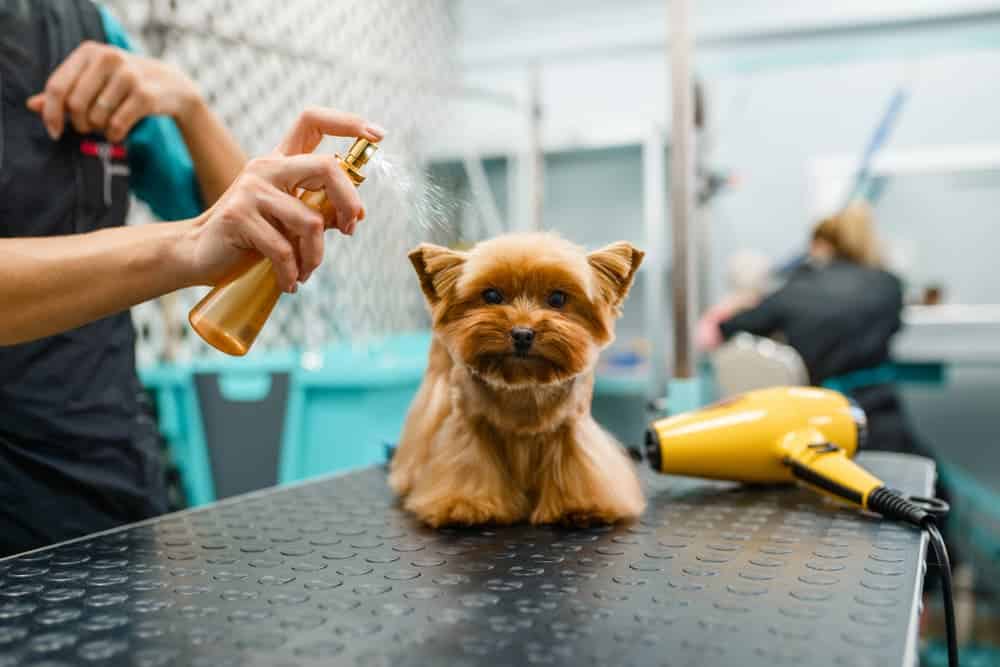
Using wipes and dry shampoo is relatively simple.
Start brushing your dog’s coat to remove loose dirt or debris before using dry shampoo (or waterless shampoo). Then, shake the bottle and apply the shampoo to your dog’s body, except the face.
Use your hands to coat the shampoo within their fur properly so it reaches the skin. Leave the product as-is for a few minutes (while ensuring your doggo doesn’t lick it).
Finally, brush off the dry shampoo and clean your dog with a fresh towel. As for the face, apply the dry shampoo to your fingers. Next, close your dog’s eyes and use your fingers to clean their face.
For wipes, start by wiping your dog down from head to tail, making sure to get in all the nooks and crannies. Pay extra attention to the face, paws, and underbelly, as these areas tend to get dirtier more quickly.
Note: It’s crucial to remember that these aren’t a substitute for regular bathing, especially for dogs with skin conditions or allergies. Treat them for what they are – a grooming tool.
Read More: Best Dog Shampoo For UK Dog Owners
How to make your dog not stink without a bath?
1. Clean your dog regularly and thoroughly.
One of the best ways to keep a dog clean and fresh is by establishing a regular cleaning routine. It includes brushing, wiping down, and checking for any dirt, debris, or ticks that may have attached themselves to your dog’s coat.
Additionally, wiping their paws and underbelly with a damp cloth or pet wipe can remove even more contaminants.
Most importantly, check for any ticks in your dog’s coat and remove them immediately with a proper tick-removal tool.
2. Maintain a healthy balanced diet for your dog.
Foods rich in omega-3 fatty acids, such as salmon and flaxseed, can help improve your dog’s coat and skin health. Foods high in vitamin E, such as almonds and sunflower seeds, can also benefit your dog’s skin.
Providing your dog with the proper nutrition can help prevent skin problems and foul odours. Ensure that your dog’s diet includes quality protein sources, essential fatty acids, vitamins, and minerals that can promote a healthy coat.
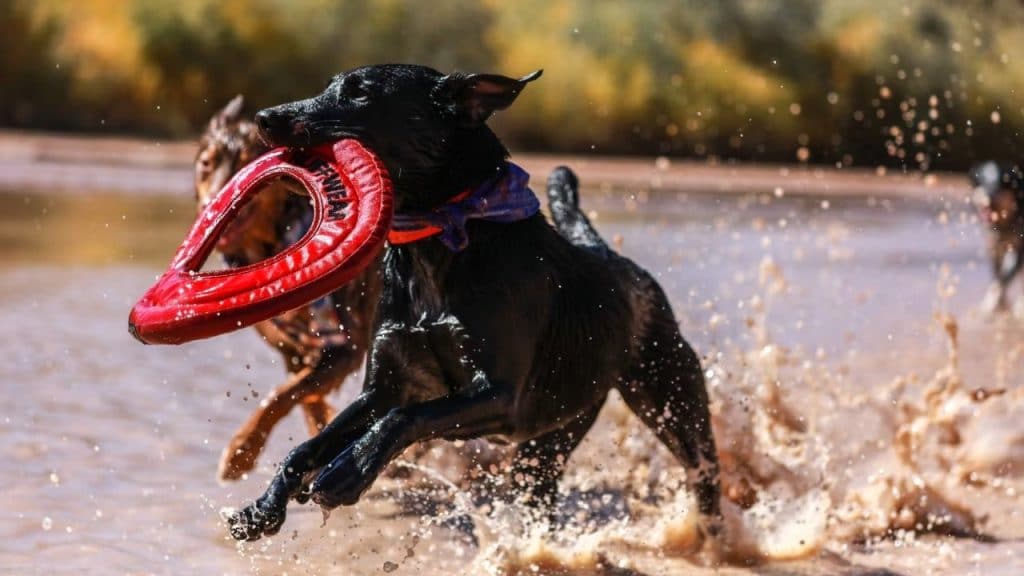
3. Ensure they get plenty of outdoor activities.
It might sound counterintuitive, but exercise and outdoor activities can help keep your dog clean and fresh. Exercise promotes good blood flow, which equals healthy skin and coat.
Regular outdoor activities like walking, running, and playing can also help prevent a buildup of dirt and odours in your dog’s coat.
That said, it’s pertinent to inspect your dog’s coat, wipe down its paws and underbelly, and brush its coat after outdoor activity.
4. Keep their bedding fresh and clean.
Dogs often pick up odours from their environment; if they sleep on a dirty bed, it will transfer. Additionally, a dirty bed can attract fleas and other pests, further contributing to the unpleasant odour on their coat.
How to properly brush and groom your dog’s coat?
Regular brushing and grooming can help prevent skin irritation, matting, and fur tangling. Not to mention, it’s an excellent way to bond with your furry friend!
Beware that there’s no one-technique-fits-all guide here. Proper grooming of your dog’s coat can vary depending on breed and coat type. Breeds with longer and thicker coats require more maintenance than others with shorter and smoother coats.
To properly groom your dog, brush its coat from head to toe. Use a slicker brush to remove loose hair and a bristle brush to smooth and distribute natural oils.
Pro Tip: Pay special attention to areas prone to matting – behind the ears and under the legs.
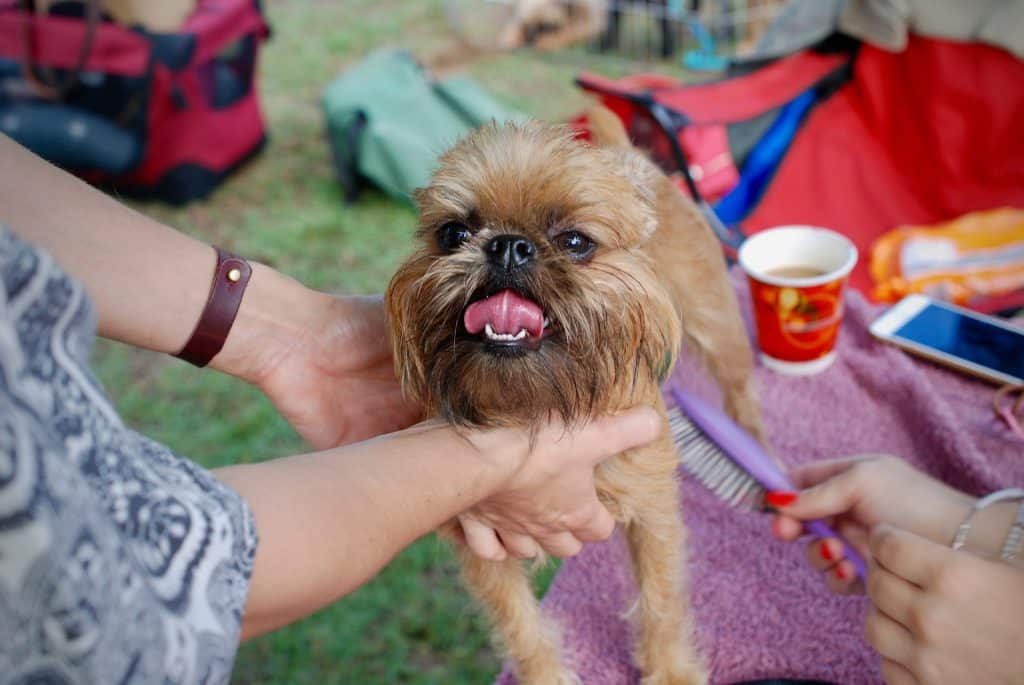
When grooming your dog, it’s essential to use the right tools. You can also use a comb for areas that are difficult to reach with a slicker brush. Use scissors to trim any knots or mats for dogs with long hair.
Pro Tip: Use scissors with rounded edges to avoid accidentally cutting your dog’s skin.
Regular brushing and grooming can help keep your dog’s coat fresh and healthy. Consult your vet to understand the required frequency and issues specific to your dog’s breed. Stop immediately and consult your veterinarian if you notice any signs of skin irritation or discomfort.
Read More: Dog Bathtub Buyer’s Guide UK: Which is the best and how to choose?
Which natural remedies can you use for stinky dogs?
Fortunately, there are several natural remedies you can use to freshen up your dog without breaking out the shampoo. Matter of fact, natural remedies can be a great way to keep your dog smelling fresh without exposing them to harmful chemicals.
Some common natural remedies for removing dog odour and keeping their coat fresh include baking soda, lemon juice, and apple cider vinegar. Baking soda is an excellent deodoriser and can absorb odours on your dog’s coat. Simply sprinkle it on and then brush it out.
You can also use lemon juice and apple cider vinegar to combat odour. Dilute them with water and spray them on your dog’s coat, carefully avoiding their eyes and nose. These remedies can help to neutralise odours and leave your dog smelling fresh.
Another natural remedy you can try is coconut oil, which is an excellent moisturiser for your dog’s skin and coat. Additionally, coconut oil has antimicrobial properties that can fight odour-causing bacteria.
Apply a small amount of coconut oil to your dog’s coat and massage it. Be sure to use high-quality, organic coconut oil, and avoid giving your dog too much, as it can be high in calories.
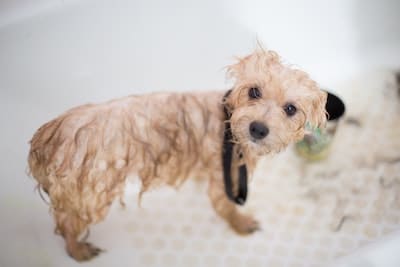
It’s worth noting that while natural remedies can be effective, they may not work for all dogs or all types of odours. For example, natural remedies may not be enough if your dog has a skin condition or a medical issue causing the smell. In these cases, it’s essential to consult with your veterinarian to determine the best course of action.
Safety Notice: Use caution and common sense when applying natural remedies. Avoid getting any medications in your dog’s eyes or nose. And be sure to test a small area first to ensure your dog doesn’t have an allergic reaction.
What not to do when cleaning your dog?
Here are a few things to avoid when cleaning your dog:
- Avoid using human shampoo or cleaning products on your dog.
- Use only a few wipes or dry shampoo at a time, as it can cause buildup and make your dog’s coat greasy.
- Avoid using wipes or dry shampoo to replace regular bathing, especially for dogs with skin conditions or allergies.
- Check your dog for ticks and other contaminants, which can cause foul odours and skin problems.
- Avoid letting your dog sleep on a dirty bed, as it can transfer unpleasant odours to its coat and attract pests.
Frequently Asked Questions (FAQs)
1. Do dogs need baths if they don’t smell?
Dogs still need baths even if they don’t smell. Bathing keeps their skin and coat clean and removes any dirt, debris, or allergens. Regular bathing also helps to prevent skin irritation and infections, promoting healthy skin and coat.
Additionally, even if your dog doesn’t smell, it may still carry bacteria or parasites that could harm them or others.
2. How long can a dog go without a bath? How often should a dog be bathed?
Generally, dogs should be bathed once every 2-3 months. However, the frequency depends on breed, coat type, and lifestyle. Dogs with oily coats and active lifestyles need to be bathed more. It’s best to consult your vet to determine the appropriate schedule for your dog.
3. Can I use human shampoo on my dog to freshen them up?
Using human shampoo on dogs is unsafe as their skin is more sensitive than ours. Human shampoos can strip off the natural oils from a dog’s skin and coat, leading to dryness and irritation. Always use shampoos that are specifically formulated for dogs.
4. Can I use baby wipes to clean my dog?
You can use baby wipes to freshen up your dog in between baths. However, use fragrance-free, and alcohol-free wipes, as both of those ingredients can cause irritation and harm your doggo’s skin.
5. What to do if my dog is stinky even after cleaning?
If your dog has a persistent odour, even after cleaning, it may be due to an underlying health issue such as an ear infection or dental disease. It’s best to consult your vet to rule out any medical problems.
